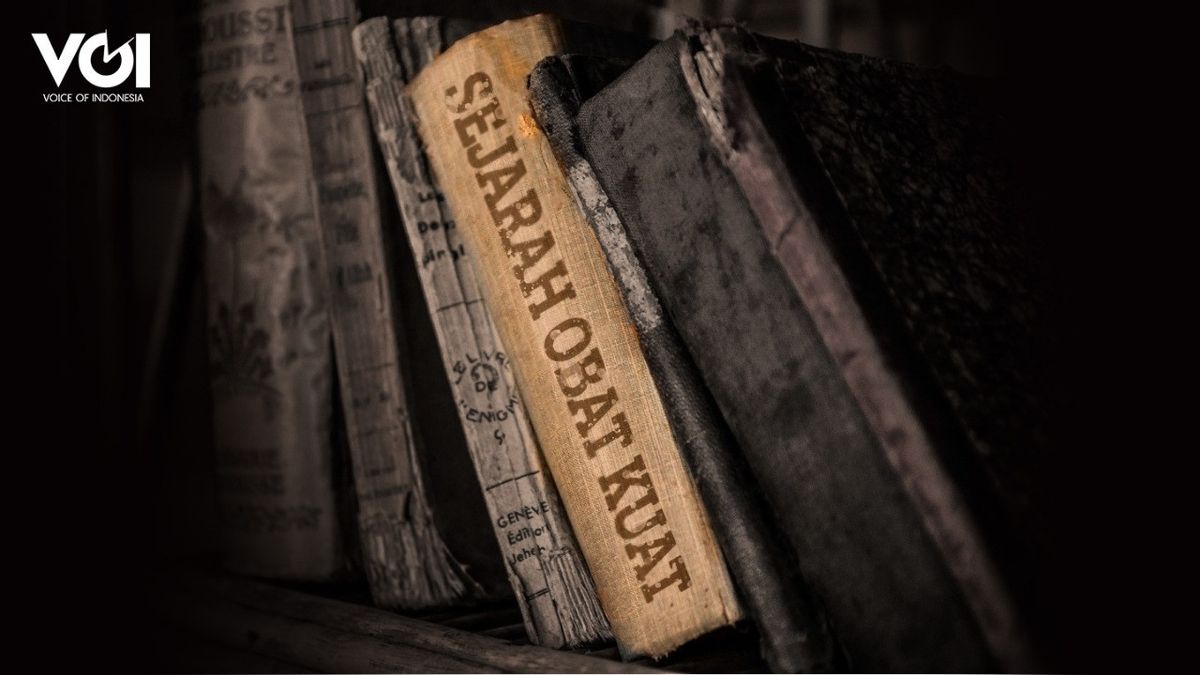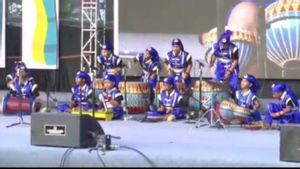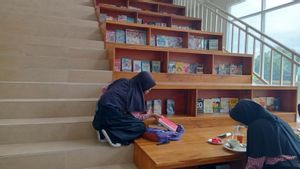Vitality has long been a symbol of male strength. The symbol from generation to generation influences the sexual behavior of men. In ancient times, kings used potions to reinforce their bravery in bed. Today it is still the same. Only the shape and pattern have changed. In this week's Writing Series, we see the complexity of men's sexual lives, the use of strong drugs and their relationship to symbols of power. Here it is, "Strong with Medicine".
"The god of weapons is akas-akas, less like acase, less like me, ora nana patine."
"The god of weapons is akas-akas, less like acase, less like me, ora nana patine."
"The god of weapons is akas-akas, less like acase, less like me, ora nana patine."
Chant the above mantra before swallowing a mixture of herbal ingredients such as kakas root, sunti pepper, and humpback chilli into your throat. That way, you have mastered the vitality enhancement style of royal men in ancient times. Mataram Kingdom era, to be exact.
The mantras above are usually chanted by royal men when they want to consume the Jalu Usada recipe, the secret to increasing male vitality at that time. The Kitab Serat Centhini VII Pupuh Dhandhanggula narrates the use of the princes and kings version of a strong medicine made from a mixture of root-length kakas, sunti pepper, and w humpback chilli. The dose, each is seven pieces.
The mixture of the above ingredients is added with lanang salt, teak charcoal, and a quarter of palm sugar and pinet. All ingredients must be ground until smooth during the day before forming into capsules. Apart from Jalu Usada, there is another known vitality booster recipe, namely the Bengal Banana Tree Sap.
This one consists of a mixture of ingredients such as turmeric lanang, meat fat, lanang salt, sesame oil. The whole thing is mixed with lemon juice and then drunk. The use of strong drugs, in this case a vitality booster herb, has been recorded since the days of the Mataram Kingdom or the early days of Surakarta.
Facts that show the prevalence of strong medicinal use at that time are recorded in the Kitab Serat Centhini compiled in 1815. The Kitab Serat Centhini was written by a prince who later became Sunan Paku Buwana V.
Otto Sukatno, in Sex of the Prince (2002) describes the purpose of writing Serat Centhini as an attempt by the central power to expand the fringe tradition into the great Javanese tradition. However, "what is revealed in it represents more the voice of the Javanese aristocrats or princes, rather than the sound (culture) of the fringes," wrote Sukatno.

Symbol of power and patriarchy
There is a strong connection between sex, courage, and a patriarchal culture. Collective memory rooted in the sexual behavior of kings and their habit of using vitality-enhancing potions strengthens the relationship between strong medicine and patriarchal culture. That men must rule over women. Even in the case of intercourse.
The habit of using vitality-enhancing potions is thought to have originated from the royal environment. The Kitab Serat Centhini is a medium for spreading the habit. When the wider community read the Kitab Serat Centhini, which contains the sex life of the kingdoms in its content, they were moved to follow this habit until the use of vitality-enhancing potions spread into a great Javanese tradition. The initial goal of writing Serat Centhini was achieved.
If we take it deeper into the roots, the history of the use of vitality boosting potions may have been heavily influenced by the 'war-marriage' tradition. In the past, the kings of Mataram used marriage as a political strategy to strengthen their power. It was customary, when winning a war, a king, pati, and royal officials married the daughter or female relative who lost.
When the Mataram Kingdom succeeded in seizing Surabaya in 1625, for example. At that time, Sultan Agung, the third sultan who ruled in the period 1613-1645, took the son of Pangeran Pekik, the leader of Surabaya as his wife. This principle also applies to all princes who are descended from kings to the extent that it extends to the lives of the aristocrats.
The kings of Mataram at that time had two consorts (garwa padmi) or more. They are Ratu Kulon and Ratu Wetan. However, that was only the empress. Kings usually had an innumerable number of concubines (garwa ampeyan). The politics of marriage is also one of the things recorded in the Chentini Fiber Book. The tradition of using strong drugs got more massive from there, how the kings had to balance out their sex life with their consorts and concubines.
Power relations are getting stronger. Among the Javanese rulers, a culture developed which raised the authority of a ruler - in this case the king - when he had more than one wife. All the stories above clearly illustrate how the relationship between the use of vitality-enhancing potions - as the origin of strong medicine - with a symbol of power and strength and patriarchy.
University of Indonesia (UI) sociologist Ida Ruwaida Noor helps us see this historical development in a more contextual perspective. According to him, this hereditary tradition has been transformed into a collective memory that has had a big influence on the sexual lives of many people today.
"Manhood must be proven by courage. It is not only a matter of war, but also a bed," Ida told VOI, Monday, January 20.
According to Ida, this demand is burdensome for men. Adam feels the need to prove courage so that many of them fall into a vicious cycle of using strong drugs and deviant sexual points of view. The penis, with all the symbols of hereditary strength, seems to be the single variable for quality sex. Heretical.
"This idea of the penis is the source of male power," said Ida.
Next Article: A Map of the Vitality Issue Among Strong Drug Users
The English, Chinese, Japanese, Arabic, and French versions are automatically generated by the AI. So there may still be inaccuracies in translating, please always see Indonesian as our main language. (system supported by DigitalSiber.id)











